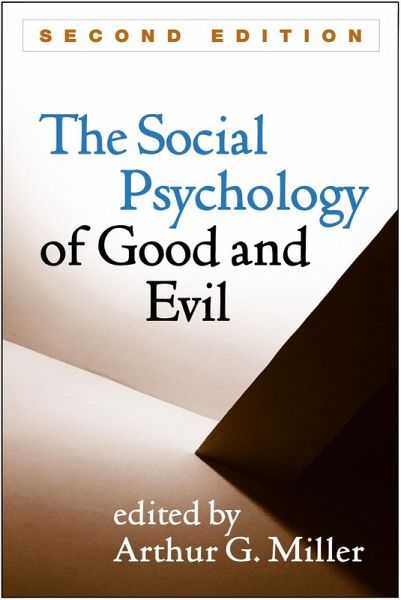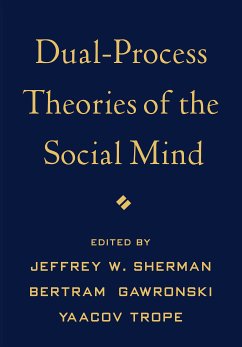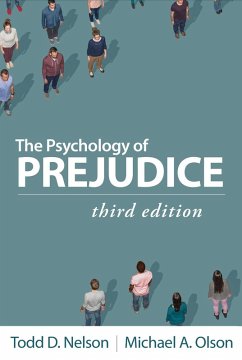
The Social Psychology of Good and Evil (eBook, ePUB)
Versandkostenfrei!
Sofort per Download lieferbar
50,95 €
inkl. MwSt.
Weitere Ausgaben:

PAYBACK Punkte
25 °P sammeln!
This timely, accessible reference and text addresses some of the most fundamental questions about human behavior, such as what causes racism and prejudice and why good people do bad things. Leading authorities present state-of-the-science theoretical and empirical work. Essential themes include the complex interaction of individual, societal, and situational factors underpinning good or evil behavior; the role of moral emotions, unconscious bias, and the self-concept; issues of responsibility and motivation; and how technology and globalization have enabled newer forms of threat and harm. New ...
This timely, accessible reference and text addresses some of the most fundamental questions about human behavior, such as what causes racism and prejudice and why good people do bad things. Leading authorities present state-of-the-science theoretical and empirical work. Essential themes include the complex interaction of individual, societal, and situational factors underpinning good or evil behavior; the role of moral emotions, unconscious bias, and the self-concept; issues of responsibility and motivation; and how technology and globalization have enabled newer forms of threat and harm.
New to This Edition
*Many new authors; extensively revised with the latest theory and research.
*Section on group perspectives, with chapters on bystanders to emergencies, remembering historical victimization, organizational dynamics, and globalization and terrorism.
*Chapters on free will, conscious versus unconscious processes, media violence, dehumanization, genocide, and sexual violence.
*Chapters on false moral superiority, compassionate goals in relationships, and moral emotions in incarcerated offenders.
New to This Edition
*Many new authors; extensively revised with the latest theory and research.
*Section on group perspectives, with chapters on bystanders to emergencies, remembering historical victimization, organizational dynamics, and globalization and terrorism.
*Chapters on free will, conscious versus unconscious processes, media violence, dehumanization, genocide, and sexual violence.
*Chapters on false moral superiority, compassionate goals in relationships, and moral emotions in incarcerated offenders.
Dieser Download kann aus rechtlichen Gründen nur mit Rechnungsadresse in A, D ausgeliefert werden.













